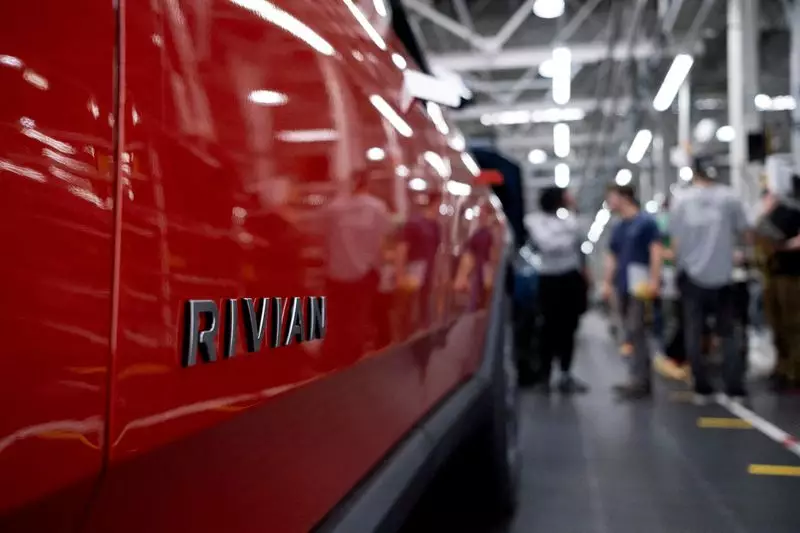The electric vehicle (EV) landscape is experiencing transformative changes, with the recent alliance between Rivian, a U.S.-based electric pickup and SUV manufacturer, and the German automotive giant Volkswagen poised to set new industry standards. Announced in November, the partnership entails a substantial investment of $5.8 billion from Volkswagen into a joint venture focused on enhancing the electrical infrastructure and software capabilities of both companies’ future electric vehicle platforms. As traditional automakers adapt to the evolving market, this strategic collaboration serves as a crucial means of leveraging technological synergies and reducing operational costs.
One of the central advantages of this joint venture is Rivian’s innovative electrical architecture, which streamlines the vehicle manufacturing process. By employing fewer electronic control units and reducing wiring needs, Rivian’s design not only lightens vehicle weight but also simplifies assembly. This shift signifies a movement toward “software-defined vehicles,” allowing for over-the-air software updates akin to smartphone technology – an area where many conventional automakers lag. Rivian Chief Software Officer Wassym Bensaid emphasized the burgeoning interest from other Original Equipment Manufacturers (OEMs), pointing out that the venture positions itself as a pivotal partner for any automaker seeking technological advancement.
As the global demand for electric vehicles faces fluctuations, Rivian’s joint venture with Volkswagen may emerge as a stabilizing force. The collaborative effort not only aims to heighten production volumes—affording Rivian better negotiating power with suppliers—but also presents vehicle manufacturers with a direct pathway to integrate sophisticated software technologies that have often posed challenges for them. The partnership may enable these manufacturers to expedite their entry into a competitive market while leveraging Rivian’s expertise in EV technology, which is critical as they navigate their own transitions toward electrification.
The joint venture’s future remains focused on the rollout of Rivian’s R2 model, which is designed to be a more affordable SUV. This strategic introduction showcases the venture’s responsiveness to market demands for cost-effective electric options while simultaneously integrating advanced technologies into Volkswagen’s broader portfolio. Bensaid noted the potential for other OEMs to collaborate, highlighting the venture as an attractive option for automakers striving for a technological leap.
As analysts observe, the Rivian-Volkswagen partnership is likely to carve out a significant space within the Western EV market, positioning itself as a fierce competitor alongside Tesla. Beyond technological advancements, the collaboration also alleviates financial pressures for Rivian by distributing capital costs associated with development and scaling operations. This cohesive approach to tackling the challenges posed by the rapidly evolving automotive landscape illustrates a progressive stride towards a sustainable, electrified future.
The joint venture between Rivian and Volkswagen represents a strategic inflection point for the EV industry, where collaboration supersedes competition, paving the way for innovation, cost efficiency, and technological proliferation. As the market continues to mature, such partnerships will be pivotal in establishing a foundation for the next generation of electric vehicles.

